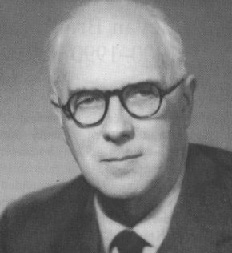R. B. Braithwaite facts for kids
Quick facts for kids
R. B. Braithwaite
|
|
|---|---|
 |
|
| Born |
Richard Bevan Braithwaite
15 January 1900 Banbury, England
|
| Died | 21 April 1990 (aged 90) Cambridge, England
|
| Alma mater | King's College, Cambridge |
| Era | Contemporary philosophy |
| Region | Western philosophy |
| School | Analytic philosophy |
| Academic advisors | G. E. Moore |
| Doctoral students | Imre Lakatos |
|
Main interests
|
Philosophy of religion |
|
Notable ideas
|
The existence of logical features common to all the sciences The nature of religious belief |
|
Influences
|
|
|
Influenced
|
|
Richard Bevan Braithwaite (born January 15, 1900 – died April 21, 1990) was an English thinker. He was a philosopher who studied big questions about science, right and wrong (ethics), and religious beliefs.
Contents
About Richard Braithwaite's Life
Richard Braithwaite was born in Banbury, England. His father, William Charles Braithwaite, was a historian who studied the early history of the Quakers.
Richard went to Sidcot School and Bootham School. During the First World War, he was a conscientious objector. This means he refused to fight in the war because of his beliefs. Instead, he helped people by serving in the Friends' Ambulance Unit.
His Time at Cambridge University
In 1919, Richard started studying physics and mathematics at King's College, Cambridge. He earned his first degree in 1923 and a master's degree in 1926. He became a Fellow of King's College, which is a special academic position, and held it from 1924 until he died.
In 1928, he became a lecturer in Moral Sciences at Cambridge University. He taught there from 1934 to 1953. Later, he became the Knightbridge Professor of Moral Philosophy, a very important teaching role, from 1953 to 1967.
Richard was also the president of the Aristotelian Society from 1946 to 1947. This is a group for philosophers. In 1957, he was chosen as a Fellow of the British Academy, which is a high honor for experts in the humanities and social sciences.
Family and Beliefs
Richard Braithwaite married Margaret Masterman. She was also a philosopher and worked with computers and language. Together, they started a group called the Epiphany Philosophers. This group included mostly Anglicans and Quakers. They wanted to find new ways to understand how philosophy and science are connected.
Richard Braithwaite's Work and Ideas
Richard Braithwaite was a Christian, even though he had ideas that were similar to positivism. Positivism is a way of thinking that focuses on what can be proven by science. He grew up as a Quaker and later became an Anglican.
Views on Religious Belief
In 1955, Richard gave a famous talk called "An Empiricist's View of the Nature of Religious Belief." In this talk, he explored how religious beliefs work from a scientific point of view. This talk became very well-known and was often discussed by other thinkers.
Scientific Explanation and Game Theory
His most important book was Scientific Explanation: A Study of the Function of Theory, Probability and Law in Science, published in 1953. This book looked at how scientific theories, chances, and rules work.
Richard was chosen to be a professor of moral philosophy (ethics), even though he felt he didn't know much about it. So, for his first lecture in this new role, he talked about "Theory of Games as a Tool for the Moral Philosopher."
He tried to connect game theory with ethical thinking. Game theory is a way to study how people make decisions when their choices affect each other. By doing this, he helped create a whole new area of study. This new field explores how game theory can help us understand right and wrong.
After he retired in 1967, Richard was a visiting professor at Johns Hopkins University. He taught about game theory there. He encouraged one of his students, Alexander Rosenberg, to use his ideas from Scientific Explanation to study economics.
Famous Poker Incident
Richard Braithwaite was friends with another famous philosopher, Ludwig Wittgenstein. There's a well-known story about a meeting at King's College, Cambridge. During an argument, Wittgenstein reportedly picked up Richard's poker and waved it at another philosopher, Karl Popper. The poker then disappeared!
Richard was also a friend of Frank P. Ramsey, another important thinker. After Ramsey died young, Richard helped put together a collection of his writings.
In 1980, a special book called Science, Belief and Behaviour: Essays in Honour of R. B. Braithwaite was published. This book contained essays written by other philosophers to honor Richard Braithwaite's work.
 | James Van Der Zee |
 | Alma Thomas |
 | Ellis Wilson |
 | Margaret Taylor-Burroughs |

